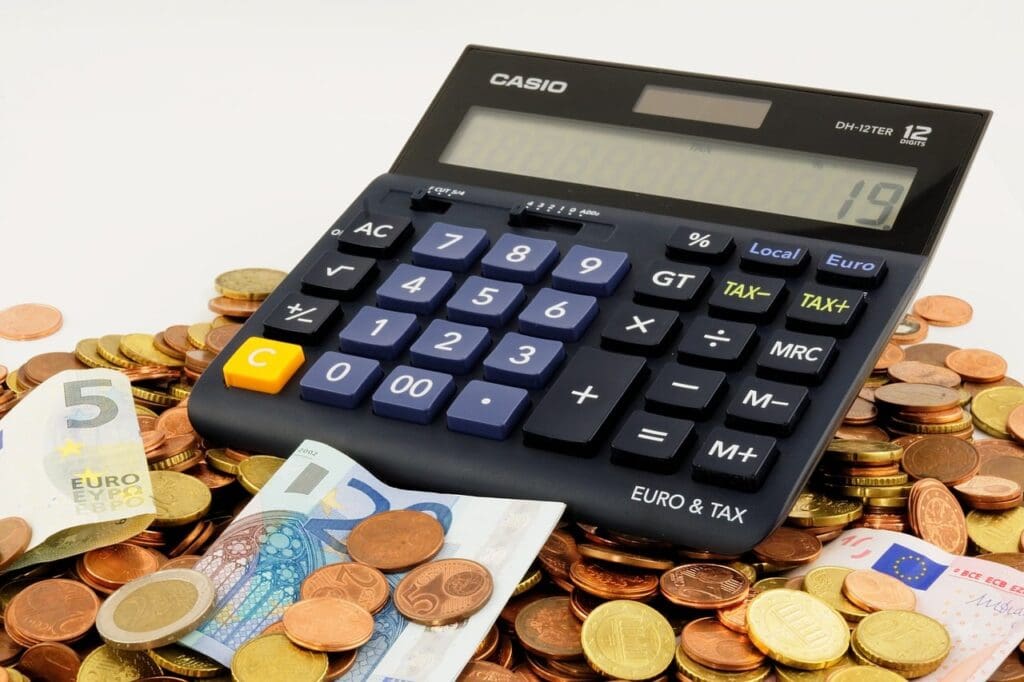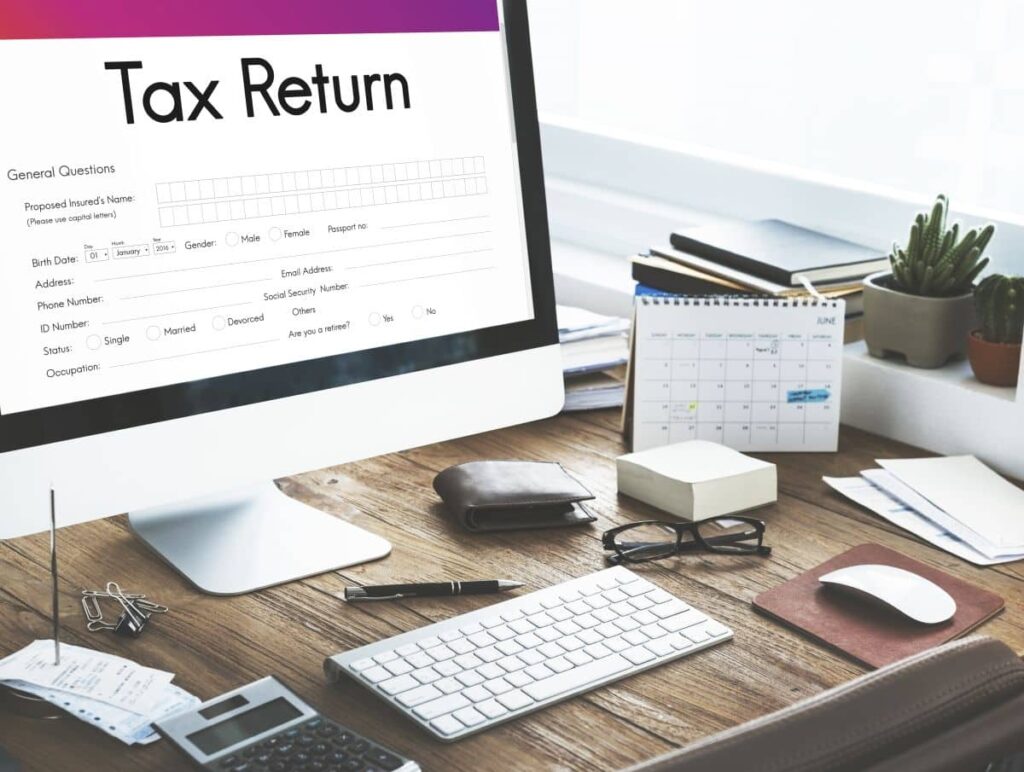Advice For Avoiding Christmas Tax
It is already that time of the year once more! It won’t be long before Christmas now, and if you’re anything like me, you’ve probably already started giving some thought to what presents you can get for the people you care about. Unfortunately, as a result of there being so many other people who are on the same wavelength as us, prices are skyrocketing, and it can be difficult to know where to go for some reasonable bargains. So, in order to help you avoid paying any of those pesky taxes during this holiday season, here are some of my best recommendations.
Many individuals in Australia believe that it is too late to do anything about the Christmas Tax issue, despite the fact that it is a significant problem. However, if you follow these pointers, you’ll be able to avoid paying the holiday sales tax and keep more of the money you’ve worked so hard to acquire. Donating your gifts rather than purchasing them is the most effective way to get around this restriction.
By doing so, you can give to charities that are in need of support while at the same time avoiding paying tax on expensive assets such as houses or automobiles. It is essential that you do not acquire any pre-owned things for the people in your circle of friends or family, as this will result in the imposition of a tax. If you are still having trouble deciding what presents to get, there are many businesses on the internet that sell gift cards; all that is left for you to do is purchase them, wrap them up, and ship them off!
Don’t Invite The Tax Man to Your Christmas Party
We are willing to bet that, with just four weeks left before Christmas, you have already started thinking about the various ways in which you and your team are going to celebrate the holiday season.
If you are the owner of a company, you may want to show appreciation to your staff and customers for a successful year by hosting a Christmas party for them or giving them a few thoughtful gifts.
However, although playing Santa is a terrific concept for boosting morale, there may be unseen tax implications associated with the practice.
This Christmas, make sure you aren’t surprised by an unexpected tax bill by following our straightforward guide to Christmas parties, gifts, and the applicable laws in Australia.
Are You Required To Pay Fringe Benefit Tax On Your Workplace Christmas Party?
Even though there is no such thing as an “entertainment fringe benefit,” you may be able to count on the fact that you provide your employees and their connections with opportunities to participate in social and recreational activities like holiday parties, weekend getaways, and other social gatherings as a fringe benefit.
You need to take into consideration the following aspects in order to assess whether or not organizing a Christmas party for your workplace qualifies as entertainment.
Why are you providing the workers with free food and drink in the first place?
Generally speaking, it is not considered entertainment to provide your employees with food or drinks to help them get through the working day in comfort. For example, providing iced water on a hot day or pizza for dinner while you are all working late to meet a tight deadline are examples of this.
But let’s say you host a social event for your employees and make sure they have something to eat and drink while they’re there. The event’s primary objective is to ensure that everyone has a good time. If this is the case, then it most likely falls under the category of entertainment.
What kind of food and beverages will you be providing?
Next, give some thought to the kinds of refreshments that will be offered. Are these low-cost nibbles or goodies that you’ve produced yourself? Or are you paying for a meal at a fancy restaurant, drinks at a hip bar, or an extravagant supper consisting of multiple courses?
If the food and drink that you have planned are more complex than what you typically consume during a meal, then it is likely that what you have planned should be considered entertainment.
It is less likely that the food you provide will be enjoyed since it is being done for a job-related reason rather than for the goal of enjoyment if it is being provided during regular work hours, during overtime, or while travelling for work.
It is more likely that customers will consume the food or drink that is offered at a function room, hotel, theatre, or restaurant than the refreshments that are offered in-store or at the workplace.
In addition to this, it is possible to be entertained if the meal is accompanied by music, dance, a performance, or any other type of fun.
What is the price range for the food and drinks?
If the cost of putting on your celebration is going to be more than $300 per person, including GST, then it does not qualify for the exemption for minor benefits, and you will be required to pay FBT on it.
An exemption from the FBT is available for fringe benefits provided that they are uncommon, irregular, and have a value that is less than $300. However, please be aware that the $300 sum does not qualify as a deductible amount and that if it is exceeded, FBT will apply.
How to Calculate Your Obligation Regarding the FBT Entertainment Tax
You are required to decide the method you will use to determine your entertainment responsibility under the FBT Act. The majority of proprietors of businesses choose to employ either the “actual method” or the “50/50 method”.
Actual Method
When you use the “actual method“, you divide the costs of the entertainment between the employees (and their families) and the people who are not employees.
The amount you spend on employees is tax-deductible and subject to FBT, while the amount you spend on non-employees is not subject to FBT, is not tax-deductible, and is not claimable for GST. You can deduct what you spend on employees from your taxes, and FBT must be paid on it.
50/50 Method
You have the option of using the less complicated 50/50 method to split the costs of the entertainment at your party rather than dividing the costs according to who attends your party.
According to this method, regardless of where the party is held or who attends, fifty percent of the entire cost is subject to FBT, and a tax deduction or GST credit can be claimed (where available) for this component of the cost. This percentage of the cost is also subject to FBT. The FBT rules apply to the remaining fifty percent.
However, be sure you don’t get caught in the following pitfalls:
- To begin, the taxable status of the food and drink that you offer to your employees is not excluded from FBT, even if the function is held on your premises.
- If you choose to use the 50/50 method, the exemption for minor benefits is not available to you.
Do Gifts Make Better Sense Than A Christmas Party?

The simple answer is yes! Consider buying non-entertainment gifts for your staff that are less than $300 in total cost rather than throwing a Christmas party for them.
Give your staff non-entertainment presents under $300. In most cases, the FBT does not apply to non-entertainment presents that are valued at less than $300. You are eligible to receive a tax deduction as well as a credit for the GST.
Gifts that do not involve entertainment can take the form of skincare and beauty products, flowers, wine, perfume, gift certificates, or gift baskets. Avoid giving away things like gym memberships or vacation experiences because these are all regarded forms of recreation or entertainment. This includes giving away tickets to sporting events, movies, and plays.
The exemption for modest benefits in the amount of $300 also applies independently to any presents that are presented to associates. This means that a matching gift can be given to the staff member’s spouse or partner and yet have the same favourable tax effect.
The tax benefits associated with these rules do not apply to gifts given to single proprietors or partners in partnerships. Because, after all, you can’t work for yourself, right?
Keep in mind that Christmas gifts are considered separately from the Christmas party when determining whether or not the minor benefits exemption can apply. Don’t forget to claim a tax deduction for “non-entertainment gifts,” including gift vouchers, and keep in mind that the determination of whether or not the exemption can apply is separate from the Christmas party.
Gifts of more than $300 to an individual are taxed at a higher rate
Giving gifts of greater value results in lower overall tax savings. You can still make a claim for a tax deduction and a GST credit; however, an FBT payment must be made at the rate of 47% of the gift’s “grossed-up” value if the gift’s worth is greater than $300 after taking into account GST.
The FBT does not apply to any gifts that are given to customers or vendors. Because customers and vendors are not considered employees, the FBT rules do not apply to the gifts that are given to them that do not involve entertainment. In general, it is still possible to claim a tax deduction as well as a credit for the goods and services tax (GST), providing the gifts do not exceed reasonable expectations in terms of their value or quantity.
So, What Should I Present to My Employees as a Holiday Gift This Year?
Instead of throwing a Christmas party for your employees, it would be more beneficial for your company if you gave them gifts that did not involve entertainment and cost less than $300. These can be deducted from your taxes, and there will be no FBT due on them.
We recommend demonstrating your gratitude through the presentation of thoughtful mementos of a more modest kind, such as gift baskets, gift cards, wine, flowers, or beauty goods.
Gift certificates are a fantastic option for solving this problem for larger teams. Do not give in to the temptation of giving gift cards for $300, as this amount is not less than $300 and hence does not qualify for the minor benefits exemption. Instead, how about we try $250 or even $299?
Advice on How to Avoid an Unexpected Tax Bill During the Holidays
Parties held in celebration of Christmas are frequently categorized as forms of entertainment and are subject to FBT. This is especially the case if they take place away from the office, including both recreational and social activities, and have a price tag of more than $300 for each staff member. We note:
- Giving non-entertainment gifts that cost less than $300 per staff member is more tax effective than hosting a party.
- If you are going to be giving out gift cards, resist the urge to give them $300 vouchers because this amount is not less than $300 and hence will not qualify for the minor benefit exception.
- It is important to keep in mind that the Christmas party is evaluated independently from the Christmas gifts in order to determine whether or not the modest benefit exemption can be applied.
Top Tips For Keeping The Tax Man Happy This Christmas
The season of Christmas parties is just around the corner. In the next weeks, tens of thousands of companies throughout Australia will fork out money to ensure that their employees are able to let their hair down and celebrate the close of another successful year.
There will undoubtedly be instances of embarrassment and regret, in addition to a few hangovers. But if your company is shelling out money for a holiday bash, is there also the possibility of a tax hangover in the near future?
We’ve done the research for you, and below you’ll find our top ten suggestions for avoiding an unexpectedly high tax bill during the holiday season:
- If you host a Christmas party for your employees off-site, for example, at a hotel, restaurant, or function centre, the cost of throwing the party would generally be considered a fringe benefit, and the employer would be responsible for paying fringe benefits tax (FBT) on the amount of the party.
- On the other hand, there will be no obligation to pay FBT if the cost per employee is less than $300. This is due to a provision in the law known as the “minor benefits exception.” This exception is also applicable in the case that spouses or partners attend the celebration together.
- The exemption for benefits granted to minors applies to each and every benefit. This means that in actual practice, if you feel like being kind and spending $290 per head on the party and then giving a present to each employee with a value of another $290, then both of these expenses are exempt from FBT.
- If you spend more than $300 on the function, the whole lot will be subject to FBT, not just the excess.
- The costs of a Christmas party, such as food and drink, are exempt from the FBT if they are given on a working day on the premises of the firm and eaten by the employees who are currently employed there. If, on the other hand, wives or other guests of employees are permitted to attend, there may be responsible for fringe benefits tax (FBT), unless the expenditure is exempted under the minor benefits exemption (see above).
- If your company pays for taxi fares to and from the celebrations, these expenditures will be included in the $300 per head limit if the event is held away from your premises, but they will be exempt from FBT if the party is held at your location.
- The bad news is that if the cost of your Christmas party is exempt from FBT, it isn’t tax-deductible for income tax purposes. Nor can the business claim goods and services tax credits for the costs incurred.
- In a manner that is likely to cause confusion, even while gifts are excluded from FBT, in most cases, they ARE tax-deductible, and credit for GST can be claimed for them.
- If you throw a party for your customers and business associates, there is no FBT, but the costs are not deductible from your income tax.
- In most cases, the tax situation of the employee is unaffected by any of this. They can eat, drink, and be merry, knowing that the tax repercussions will typically exclusively fall on the employer’s shoulders.
The most often asked Christmas tax questions
The best way to buy Christmas presents for your coworkers is to keep the gestures unplanned and impromptu and to make sure that the total cost of each gift is less than $300. Anything at or above this level will mean that your Christmas generosity will result in a gift to the Tax Office as well. The minor benefits threshold for Fringe Benefits Tax (FBT) is $300, so anything at or above this level will mean that your Christmas generosity will result in a gift to the Tax Office as well. To be considered a minor benefit, the gifts must also be one-time-only (no recurring payments for a gym membership or giving the same person regular gift certificates totalling $300 or more); otherwise, the benefit will not be considered minor.
When people ask us, “what is the tax impact if you offer your employees say, a hamper and a gift card?” we tell them that there is none. The good news is that each item (the hamper and the gift card) is treated individually by the tax regulations. As long as the total value of each item does not exceed $300, FBT might not be applicable to the transaction. Nevertheless, the exemption for little benefits is a little bit more complicated than this. For instance, you are required to consider the aggregate value of identical benefits offered to the employee throughout the FBT year, among other considerations.
If you intend to reward your staff with a cash bonus rather than a gift certificate or some other item of property, then this will be subject to taxation in a manner that is comparable to that of pay and wages. A Christmas cash bonus is not a gift; it is still money for the employee, regardless of the intention behind the payment. A PAYG withholding obligation will be triggered, and the ATO is of the opinion that the bonus will also be classified as ordinary time earnings. This implies that it will be subject to the superannuation guarantee rules unless it relates only to overtime that was performed by the employee.
The Christmas Party for the Staff
If you truly want to avoid paying taxes on the cost of your company’s Christmas party, you should consider holding it in your office on a workday (COVID laws allow this!). Regardless of how much you spend on each individual, the Fringe Benefits Tax is less likely to apply if you do it in this manner. In addition, an employee is not required to pay FBT on taxi rides that begin or end at the location where they are employed. Therefore, if you have a few team members who need to be put into a taxi after overindulging in Christmas cheer, the ride home is exempt from FBT. This applies even if you have to pay for the taxi.
Keep the cost of your celebrations around $300 per person, even if your office Christmas party is going to be held somewhere other than the office. In this manner, you will generally avoid having to pay FBT because any benefit that is less than $300 per person is considered a minor benefit and is exempt from taxation.
If the party is not conducted on the premises of your company, then the cab ride is considered to be a separate benefit from both the party itself and any Christmas gifts that you have supplied for the attendees. In theory, this means that in order for the gift, the party, and the taxi trip to all be exempt from FBT, the total cost of each item per participant must be less than $300. However, in order to determine whether or not the advantages are insignificant, it is necessary to take into account the overall cost of all of the perks that are offered to the employees.
If the costs involved with throwing the party are not subject to FBT, then it will be difficult to claim a tax deduction or GST credit for the expenses. This is the trade-off for the benefit of not having to pay FBT on those costs.
If your company throws parties that are slightly more extravagant than usual and spends more than the $300 per person limit on minor benefits, you will typically be required to pay fringe benefits tax (FBT), but you will also be eligible to claim a tax deduction and GST credits for the cost of the event.
Client gifts
Since most of us don’t have too much time in our schedules to fill up with pre-Christmas activities, why not offer someone a present instead? There is a tax benefit, in addition to the fact that a few additional hours can be spared and a lot fewer calories need to be worked off (most of us are still struggling after the lockdown). As long as the gift you give to the client is given for the purpose of relationship building with the expectation that the client will keep giving you work (that is, there is a link between the gift and revenue generation), then the gift is generally tax-deductible even if it involves entertainment so long as there is a connection between the gift and revenue generation.
The cost of hosting a Christmas party for your customers or clients is not tax-deductible. If you take them to a fancy restaurant, to a musical, or any other sort of entertainment, then you cannot claim that expense as a deductible business expense, and you also cannot claim the GST credits associated with that expense. To all men, with goodwill, but not much more than that.
Charitable gift-giving

Giving cash to an organization that is categorized as a deductible gift recipient (DGR) is the safest approach to assure that you or your business can claim a deduction for the full amount of the donation. And the charity enjoys it since they don’t have to spend any of their hard-earned funds to get it.
There are a few rules that determine whether or not you will be eligible for a tax deduction.
- The charity must be a DGR. The Australian Business Register maintains a list of DGRs.
- If you buy anything for the ‘contribution’ – such as biscuits, teddies, balls, or something at an auction – it’s usually not deductible (the rules become more complex in this area). Your donation should be a gift rather than a trade for something tangible. Buying a goat or sponsoring a child’s education in the third world is often OK because you are providing an amount that is comparable to the cause rather than directly funding it.
- The individual or entity whose name appears on the receipt receives the tax deduction for charitable contributions exceeding $2.
It is important to consider the structure of the donation in the event that your company is making the contribution on behalf of another individual, such as a customer or a friend who “already has everything.” In general, the tax laws ensure that the deduction can be claimed by the person or entity that provides the contribution or gift. Having receipts issued in the name of another person can make handling this situation more difficult.




















